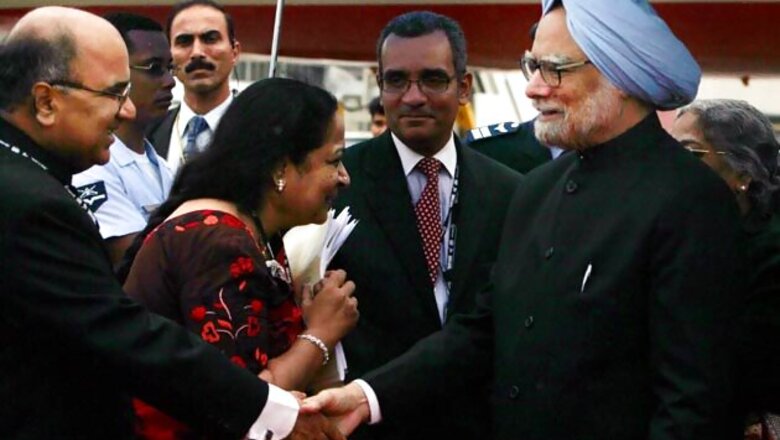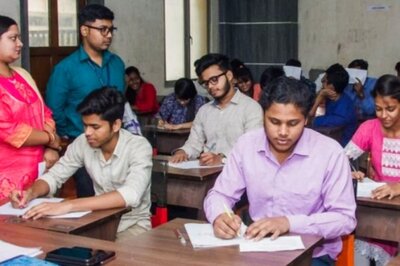
views
New Delhi: A big thumbs up for India at the Earth Summit as 190 nations agreed to India's proposal for a firewall between responsibilities of developing and developed countries.
The nations including China agreed to include India's proposal to restore the regime of common but differentiated responsibilities which advocates a firewall between the responsibilities of developing and developed countries. These are key for sustainable development globally.
Environment Minister Jayanthi Natarajan expressed her happiness over acceptance of India's points in the draft text. However, the minster also expressed her disappointment with the developed nations for not fulfilling their commitments.
India said it is disappointed with the "weak" political will in developed countries to provide developing nations enhanced means of implementation of objectives of Green Economy, which will also be a "green-wash" if the process is not democratised.
As around 100 world leaders including Prime Minister Manmohan Singh gathered here for the Rio+20 Summit, India also firmly rejected unilateral measures and trade barriers under the guise of Green Economy, which was the buzz ahead of the deliberations.
"We are now keen to collectively ensure that these mechanisms are operationalised and deliver effectively for developing countries," Natarajan said and welcomed the speedy conclusion of the Rio+20 outcome document which took into consideration India's interests and concerns.
"As far as India is concerned, the outcome document takes into consideration our interests and concerns and we are satisfied with the overall package. India was constructive at Rio and, in addition to our own proposals, which met with widespread support, our delegation played a crucial role in bridging differences and building consensus on many important issues," she said.
Natarajan said India was satisfied that no specific goals and targets have been agreed. "We look forward to engage constructively in the intergovernmental process to outline and develop goals that would be applicable to all countries, not just developed countries, integrate the three pillars sustainable development, respect CBDR and involve meaningful action by all parties and not constrain development," she said.
Natarajan said one significant development has been the restoration of the centrality of the principle of Common But Differentiated Responsibilities (CBDR) in the environmental discourse.
"Equity and its manifestation, the principle of CBDR, are at the heart of international cooperation for sustainable development and we are glad that we have collectively agreed on this key issue, which is of great significance to developing countries, not least in the climate change context."
The outcome document also clearly recognises poverty eradication as the greatest global challenge, she said, adding in doing so, it places this squarely at the centre of the global development agenda.
Natarajan said the conference will also be remembered for kick-starting the process on Sustainable Development Goals. "Since they are expected to become a part of the post-2015 global development agenda, SDGs will hopefully guide the international community towards inclusive sustainable development. We are happy that this process and its outcome will be guided by the Rio principles, respect national circumstances, priorities and capacities," she added.
With Additional Inputs from PTI



















Comments
0 comment